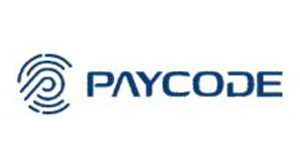
Cashless Payments Summit
- Business / Upcoming
- 19 October, 2017
- 20 October, 2017
- Victoria & Alfred Hotel / Cape Town
Cashless national economies are becoming a phenomenon the world over. In India, the government has recently demonetised the country’s two highest cash denominations, and – as discussed at last year’s conference – cash in Scandinavia has been virtually driven out of existence. Now, it seems the rest of the world has warmed up to cashless currencies and wants to catch up.
In Africa over the last decade, innovation in the financial services sector has seen the novelties of internet banking and multi-currency cards rise among other innovations. The lightning pace of disruptive technologies in this information age has meant that most people in the emerging economies – South Africa included – skipped right past the computer and straight into mobile technology. According to a report by research organisation, Research and Market, the South African mobile payment market is expected to record a 33.2 percent growth between this year and 2021 to reach US$18,362 billion in transaction value.
With almost half of Africa’s population having access to mobile phones in 2016, the leaning towards smart phones has increased the technological variations available to financial service providers; and the proliferation of these apps has been one of the greatest drivers towards cashless societies. The 2016 edition of the Cashless Payments Summit also proved the mobile phone to be a boon for most of the unbanked populations in Africa – particularly in Kenya and Zimbabwe, where mobile money platforms, MPesa and Ecocash respectively, have taken root.
Consulting firm Frost and Sullivan says mobile money and the other facets of the cashless economy – smart cards, electronic payment systems, internet and mobile banking; among others will be approaching $2billion as a business in Sub-Saharan Africa. This is a modest amount compared to world standards; but infrastructural developments could see things moving rapidly; already, the first world has seen smart watches and wrist bands that can transact – their arrival on the shores on emerging markets can disrupt the cashless game and launch it straight into the future.
But taking advantage of these developments depends on the readiness of our infrastructure and regulatory framework. Besides the traditional financial services providers, South Africa has seen the rise of financial technology start-ups whose innovations have disrupted the way people handle transactions. But while these have worked wonders in urban areas where infrastructure is more advanced, questions are still being asked about how to include rural populations and citizens who do not have bank accounts. Uptake on the digital platform has been slow. But that is where the good news come in; the slow penetration of digital infrastructure in place at this time opens the door for fintech businesses to provide financial services to millions of consumers who previously haven’t had access to bank accounts themselves, digital payments or other financial options.
The options for financial technology businesses are significant; because such people have never built out the traditional or card payment infrastructure, there is a significant opportunity for fintech companies to step in and create a completely new cashless ecosystem that leverages infrastructure such as mobile phones as a payment device.
At this year’s conference, which is scheduled for the 19th and 20th of October 2017 at the Radisson Blu Waterfront in Cape Town, discussions will go deeper into how cashless means of transacting can be spread across the country and continent, and how monetary institutions could grab the cashless technology to prop up Small and Medium Enterprises (SMEs) through such lending models as invoice, discount financing and digital lending. The summit will also discuss the availability of infrastructure necessary for the foundation of a cashless society, and the spread of such.
Objectives
• To map out South Africa’s rate of progress towards cashless societies
• To explore the possibility of smart cities and their impact on financial inclusion
• To discuss the impact of disruptive technologies on financial services
• To identify risks of cashless transactions and ways to overcome them
• To learn more about blockchain cryptocurrency technologies
• Explore ways of bring unbanked populations into the formal economy through cashless innovations
Who should attend?
• Chief Financial Officers
• Point of Sale manufacturers
• Chief Technology Officers
• Mobile Banking executives
• Heads of Payment
• Retail managers
• Small and Medium Businesses
• Bank managers
• Mobile network managers
• Telecommunications managers
• ICT managers
• Security managers
• Cyber-security experts
• Risk Officers
• Business development executives
• Software development engineers
• Digital banking executives
• Card manufacturers and suppliers
• Digital money start-ups
• Account Managers
• Blockchain Specialists
• Cryptocurrency experts
• Financial Services Regulators
Target sectors
• Fintech
• Financial Services
• Wholesale
• Retail
• Consumer groups
• Information and Communication technology
• Mobile phone businesses
• Government departments
• Municipalities
• Banks and financial institutions
• Fintech Startups













